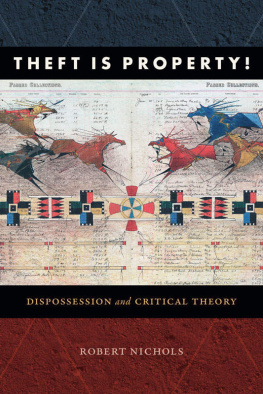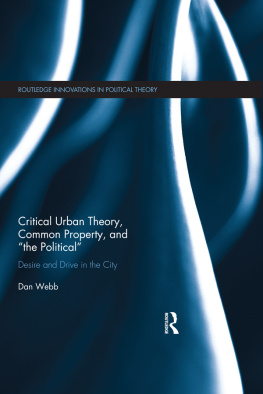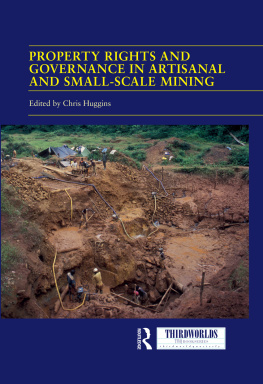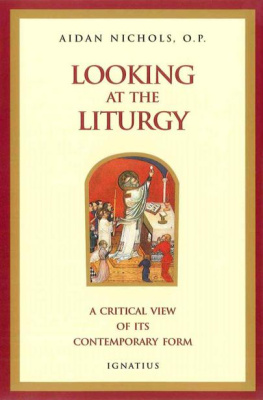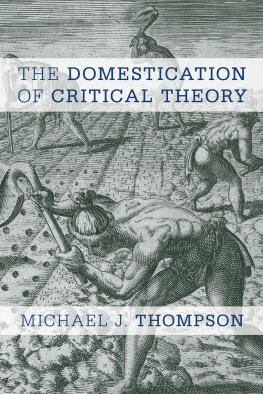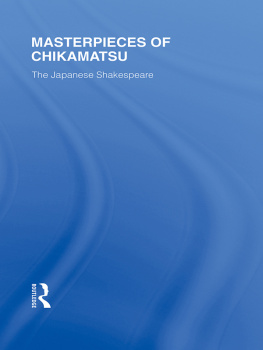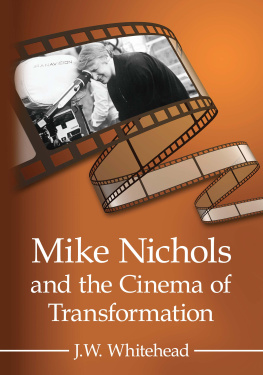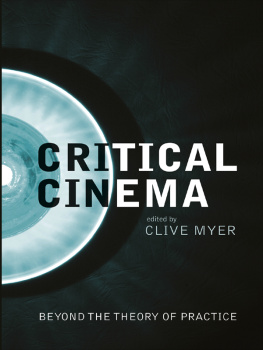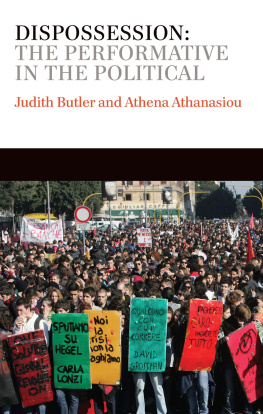Robert Nichols - Theft Is Property! : Dispossession and Critical Theory
Here you can read online Robert Nichols - Theft Is Property! : Dispossession and Critical Theory full text of the book (entire story) in english for free. Download pdf and epub, get meaning, cover and reviews about this ebook. year: 2019, publisher: Duke University Press, genre: Politics. Description of the work, (preface) as well as reviews are available. Best literature library LitArk.com created for fans of good reading and offers a wide selection of genres:
Romance novel
Science fiction
Adventure
Detective
Science
History
Home and family
Prose
Art
Politics
Computer
Non-fiction
Religion
Business
Children
Humor
Choose a favorite category and find really read worthwhile books. Enjoy immersion in the world of imagination, feel the emotions of the characters or learn something new for yourself, make an fascinating discovery.
- Book:Theft Is Property! : Dispossession and Critical Theory
- Author:
- Publisher:Duke University Press
- Genre:
- Year:2019
- Rating:4 / 5
- Favourites:Add to favourites
- Your mark:
- 80
- 1
- 2
- 3
- 4
- 5
Theft Is Property! : Dispossession and Critical Theory: summary, description and annotation
We offer to read an annotation, description, summary or preface (depends on what the author of the book "Theft Is Property! : Dispossession and Critical Theory" wrote himself). If you haven't found the necessary information about the book — write in the comments, we will try to find it.
Theft Is Property! : Dispossession and Critical Theory — read online for free the complete book (whole text) full work
Below is the text of the book, divided by pages. System saving the place of the last page read, allows you to conveniently read the book "Theft Is Property! : Dispossession and Critical Theory" online for free, without having to search again every time where you left off. Put a bookmark, and you can go to the page where you finished reading at any time.
Font size:
Interval:
Bookmark:
RADICAL AMRICAS
A SERIES EDITED BY BRUNO BOSTEELS
AND GEORGE CICCARIELLO-MAHER
HEFT IS PROPERTY!
DISPOSSESSION & CRITICAL THEORY
Robert Nichols
DUKE UNIVERSITY PRESSDurham & London2020
2020 Duke University Press
All rights reserved
Printed in the United States of America on acid-free paper
Designed by Matthew Tauch
Typeset in Garamond Premier Pro by Westchester Publishing Services
Library of Congress Cataloging-in-Publication Data
Names: Nichols, Robert, [date] author.
Title: Theft is property! : dispossession and critical theory / Robert Nichols.
Other titles: Radical Amricas.
Description: Durham : Duke University Press 2020. | Series: Radical Americas | Includes bibliographical references and index.
Identifiers: LCCN 2019013470 (print)
LCCN 2019981358 (ebook)
ISBN 9781478006732 (paperback)
ISBN 9781478006084 (hardcover)
ISBN 9781478007500 (ebook)
Subjects: LCSH: Indians of North AmericaLand tenure. | Indians of North AmericaClaims. | Indians of North AmericaLegal status, laws, etc. | Indigenous peoplesLand tenureNorth America.
Classification: : LCC E98.L3 N534 2020 (print) | : LCC E98.L3 (ebook) | DDC 970.004/97dc23
LC record available at https://lccn.loc.gov/2019013470
LC ebook record available at https://lccn.loc.gov/2019981358
Cover art: Donald F. Montileaux, Con.Fron.Ta.Tion, 2013. Courtesy of the artist.
This book is freely available in an open access edition thanks to TOME (Toward an Open Monograph Ecosystem)a collaboration of the Association of American Universities, the Association of University Presses, and the Association of Research Librariesand the generous support of the University of Minnesota. Learn more at the TOME website, which can be found at the following web address: openmonographs.org.
This work is dedicated to my mother.
This book was written in two very different locales; it bears the marks of both. It was initially conceived while I was serving as an Alexander von Humboldt Fellow in the Department of Philosophy at the Humboldt Universitt zu Berlin (HU). I am especially grateful to Rahel Jaeggi for her generous support, to Martin Saar and Eva von Redecker for their friendship and intellectual acumen, and to the entire colloquium on practical philosophy at HU for the community they provided during my years in Berlin.
In the fall of 2015, I joined the Department of Political Science at the University of Minnesota, Twin Cities. Since then, I have been enormously fortunate to work in a very supportive department. I owe particularly large debts to my two extraordinary political theory colleagues: Nancy Luxon and Joan Tronto. I also feel very lucky to work at an institution that takes Indigenous politics and scholarship so seriously. In 201718, I participated in a yearlong Sawyer Research Seminar on The Politics of Land, which gave me an opportunity to work with a truly interdisciplinary group of faculty members and graduate students, all of whom pushed the conversation in demanding and important ways. I continue to reflect on many of the questions raised that year and am grateful to you all for that experience.
I have presented aspects of this work at Columbia University; Humboldt Universitt zu Berlin; Goldsmiths, University of London; Ko UniversityIstanbul; McGill University; Pennsylvania State University; Yale University; Universitt Leipzig; University of Alberta; University of British Columbia; University of California, Santa Cruz; University of Cambridge; Universitt Mainz; University of Minnesota; at the SAVVY Contemporary Art Gallery in Berlin and Performing Arts Forum in St. Erme, France; and at the American Philosophical Association, the American Political Science Association, the Association for Political Theory, the Native American and Indigenous Studies Association, and the Western Political Science Association. In the spring of 2018, Michele Span and Alice Ingold were kind enough to invite me to serve as visiting faculty at the cole des Hautes tudes in Paris. This came at the perfect time, as I was in the final stages of preparing my argument. Thank you as well to all of the graduate students who participated in the seminars. Financial support for this project has been provided by the McKnight Land-Grant Professorship at the University of Minnesota.
The ideas presented in this book are the result of extensive conversations with dozens of people, each of whom has made significant, positive contributions to its content. Thanks in particular to Phanuel Antwi, Banu Bargu, Joanne Barker, Brenna Bhandar, Glen Coulthard, Jaskiran Dhillon, Nick Estes, Denise Ferreira da Silva, Mishuana Goeman, Alyosha Goldstein, Juliana Hu Pegues, Ulas Ince, John Monroe, Jeani OBrien, K-Sue Park, Shiri Pasternak, William Clare Roberts, Audra Simpson, Jakeet Singh, Chlo Taylor, and James Tully. I would also like to acknowledge the labor of the Duke University Press staff, including the editors, proofreaders, and design team. Special thanks to Courtney Berger for her early faith in this project and to the anonymous reviewers for their insightful comments and corrections. Just as I was putting the finishing touches on this manuscript, I received a copy of Brenna Bhandars Colonial Lives of Property (Durham, NC: Duke University Press, 2018). I did not have the opportunity to incorporate the insights of her book into my own but wish to flag the importance of her work in thinking through similar concerns as those that animate this book.
The person who has most sustained and supported me through this long process is Travis McEwen. Thank you so much, again and again.
The land is ours, by every natural right and every principle of international law recognized in relations among European powers. The land that is ours by every natural right was coveted by European powers. Seizure of our land for the use of their own people could not be justified by the law of nations or the principles of international law that regulate relations among European powers. So it became necessary to concoct a theory that would justify the theft of land.
GEORGE MANUEL (Shuswap), 1974
Brother! We are determined not to sell our lands, but to continue on them. The white people buy and sell false rights to our lands. They have no right to buy and sell false rights to our lands.
SAGOYEWATHA (Seneca), 1811
No Justice on Stolen Land. This slogan is emblazoned on pins, posters, and banners at protest events and organizing meetings held by Indigenous peoples and their allies around the globe. It reflects the high stakes and normative force of these struggles, and marks in dramatic fashion the acceleration and intensification of conflicts over land use in recent decades. In the course of writing this book, an especially important instance of this mobilization was taking place: thousands of Indigenous peoples from North America and beyond gathered at the Sacred Stone Camp in joint opposition to the Dakota Access Pipeline. An estimated $3.8 billion project, the pipeline is scheduled to transport between 470,000 and 570,000 barrels of crude oil per day over 1,200 miles, traversing the Missouri River immediately upstream of the Standing Rock Sioux reservation.
To truly understand the struggle at Standing Rock, we need to situate it in a longer history. For, although rare, this is not the only such major gathering. In 1851 ten to fifteen thousand Great Plains Indigenous peoples met nearby with representatives of the United States. Among other agreements, this historic gathering produced the Treaty of Traverse des Sioux and the first Fort Laramie Treaty, securing lands for the Dakota peoples in what was then the Minnesota Territory, as well as safe passage through Indian country for settlers on their way to California. By 1862, however, the United States was already beginning to abrogate its responsibilities. The Homestead Act of that year effectively opened up some 270 million acres of land west of the Mississippi for settlement by providing incentives for squatter-settlers. Subsequent encroachment on Dakota land quickly led to the 186264 Great Sioux Uprising. In this conflict, thousands of Dakota civilians were held in an internment camp at Fort Snelling (near where I write, in present-day Minneapolis-St. Paul), where hundreds perished of cold and starvation. Thirty-eight Dakota men were sentenced to death in the single largest penal execution in U.S. history.
Font size:
Interval:
Bookmark:
Similar books «Theft Is Property! : Dispossession and Critical Theory»
Look at similar books to Theft Is Property! : Dispossession and Critical Theory. We have selected literature similar in name and meaning in the hope of providing readers with more options to find new, interesting, not yet read works.
Discussion, reviews of the book Theft Is Property! : Dispossession and Critical Theory and just readers' own opinions. Leave your comments, write what you think about the work, its meaning or the main characters. Specify what exactly you liked and what you didn't like, and why you think so.

